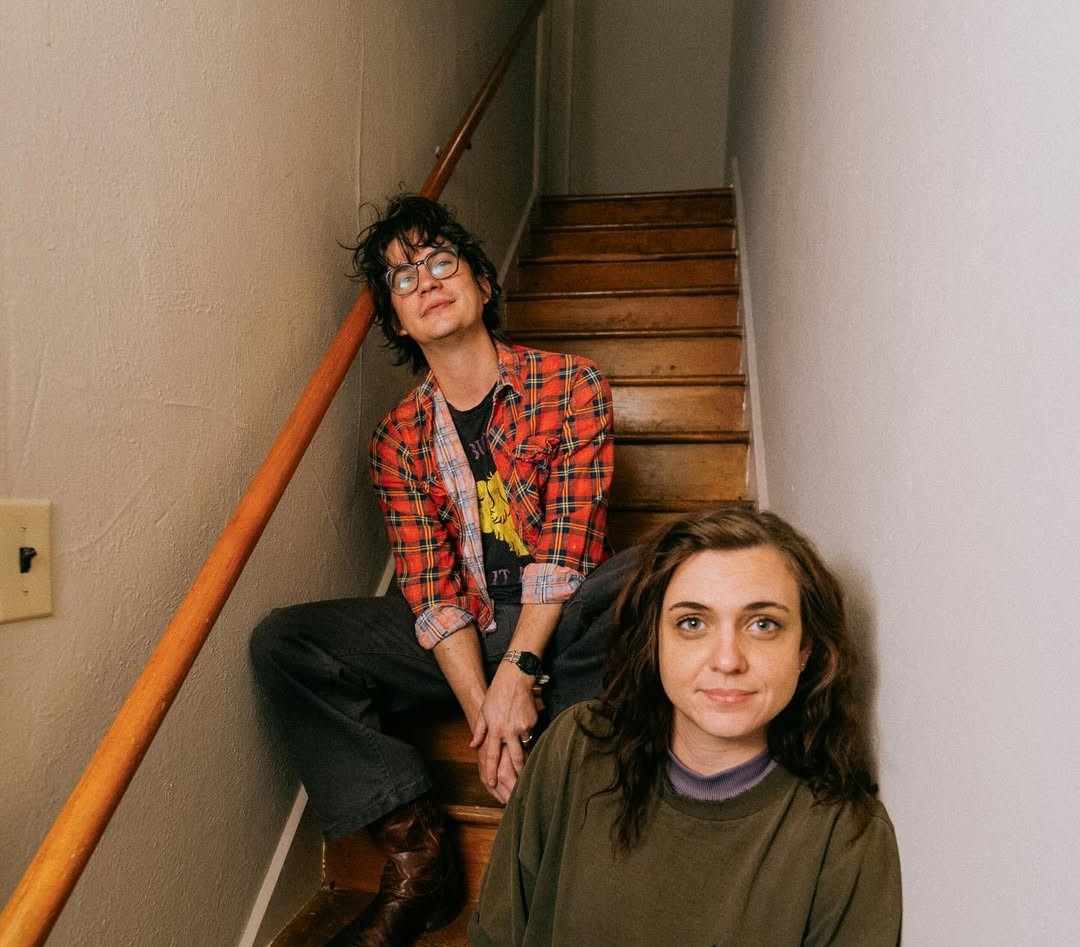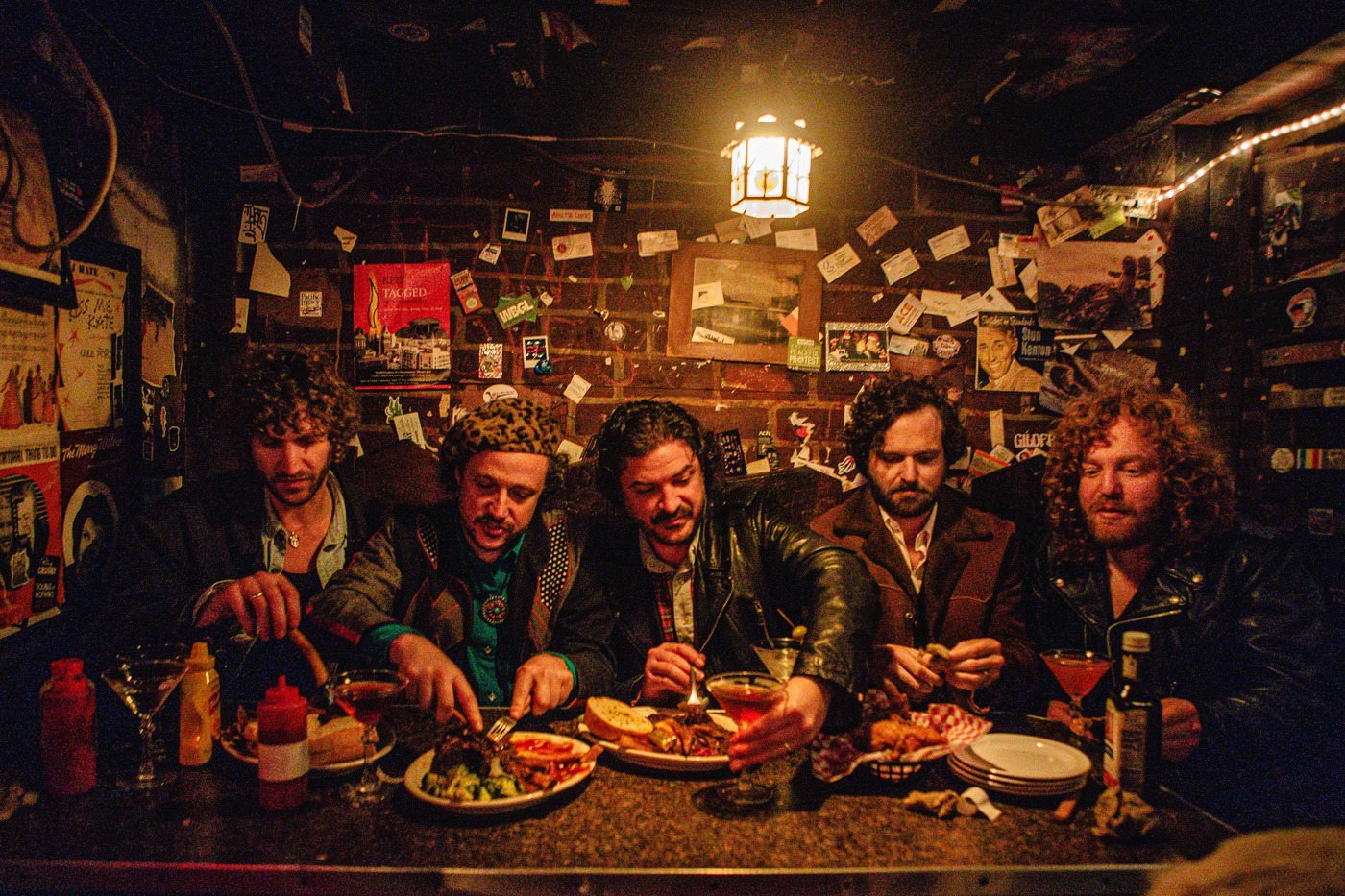Ulan Bator | Amaury Cambuzat | Interview
Ulan Bator is a French experimental post-rock band founded in 1993 by Amaury Cambuzat and Olivier Manchion. They got their name from Ulan Bator, the capital city of Mongolia.
“I didn’t want to provoke but rather to suggest.”
Your latest project is called “I Feel Like A Bombed Cathedral”. It’s quite a provocative name, don’t you think? What’s the concept behind this project?
Amaury Cambuzat: The words “Bomb” and “Cathedral” sound strong, I know. Violence and religion being apparently opposed in the minds of many. I didn’t want to provoke but rather to suggest. It expresses a moment in my life when I felt the need to find a metaphor to define my state of mind in a society where everyone has to be strong, winning, pleasant and able to define themselves in one word, I deliberately wanted to take a long and uncomfortable name that perfectly reflected what I wanted to express. A scream, certainly vain but, a cry of distress in the face of our declining society. You will notice that, in the Selfies Era, I started this project by hiding my face under a djellaba’s hood. This is my way of manifesting in the face of this self-celebration that surrounds us daily. We live in an apparently free society but in which many taboos still remain.
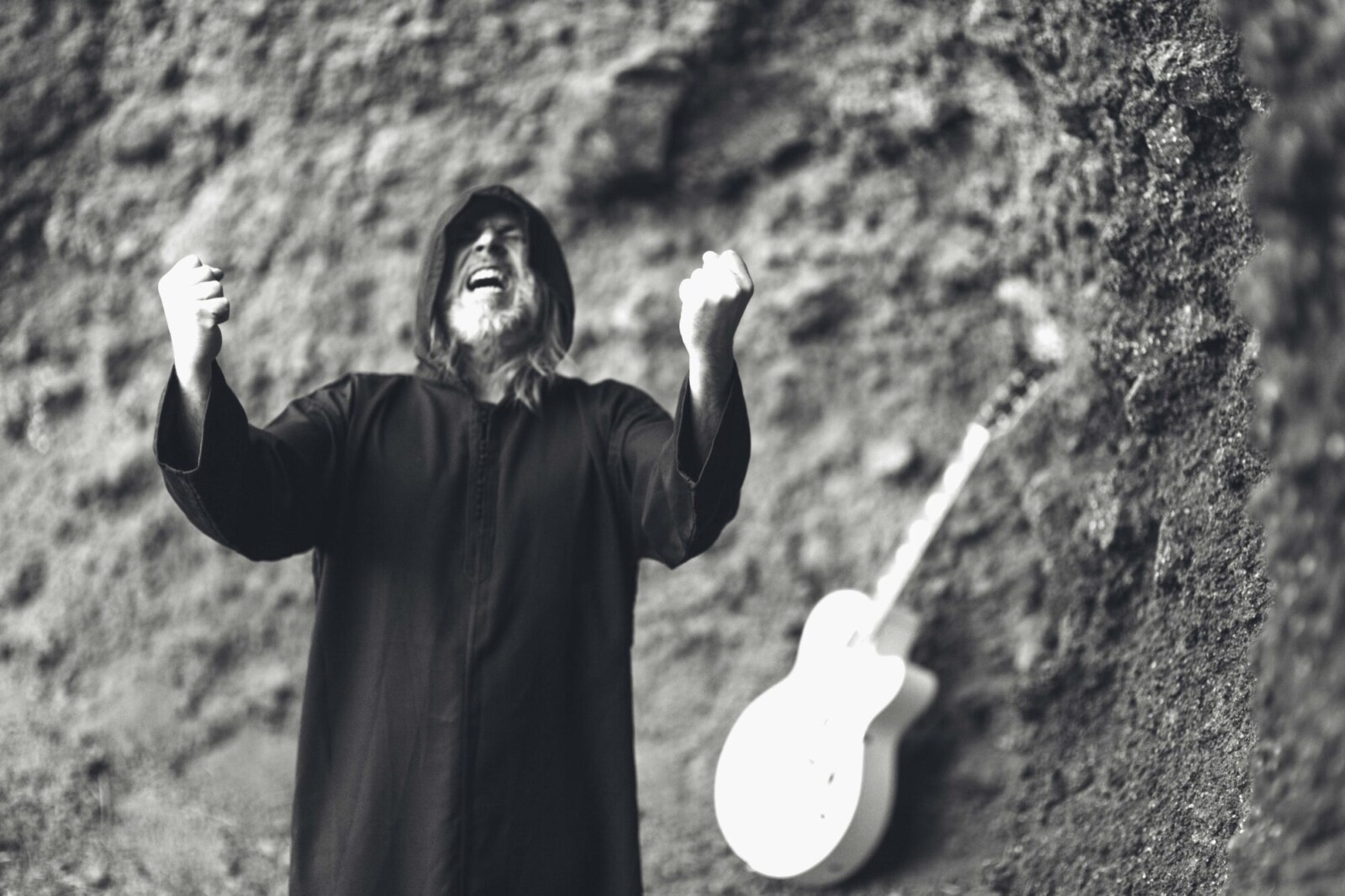
By choosing this name, I was blocked on IG from the start. That did not surprise me. Their algorithm being extremely puritanical. Finally, there is also a poetic or romantic (?) connotation for me because this name sounds like a work by Claude Debussy that I love: La Cathédrale Engloutie.
The project is fairly new but you already have three releases available. Would you like to discuss what can we hear on these releases and what are the differences between them?
I started working on this project in May 2019. I was indeed immediately motivated and therefore very productive and I have released three albums on three different labels in a very short period of time. The common denominator between these three records and the fact that they are instrumental improvisations but they are all different. The first ‘AmOrtH’ released on the English label Dirter Promotions is very atmospheric. It opens with a piece lasting 43 minutes.
The second one released on the Italian label Dio Drone is more focused on a noisy guitar, with drones and the third one released on vinyl on the Hungarian label blindblindblind, is more hypnotic and closer to contemporary music.
There are many different influences in this project. It goes from American minimalists like La MonteYoung, Terry Riley or Tony Conrad to the classical music of the 20th century like Ravel, Debussy.
To this is added a good dose of industrial and electronic music (Throbbing Gristle, Nurse With Wound) but also Heavy (Black Sabbath).
You can find more about this project here.
“I am working with an amplification system that I custom-designed for myself.”
The sound is really amazing!
I thank you for this compliment, it’s the biggest work for this project: the sound. I am working with an amplification system that I custom-designed for myself. I use a Hollow Body guitar with a lot of analog effects, all amplified in quadriphonic (four speakers) plus a 500 watt subwoofer. There is no real mixing except at the source to end up on two stereo-master-tracks. I set, as a rule of the game, that everything had to be improvised live in my studio and that nothing had to be edited, retouched afterwards. Do not cheat to keep the authenticity. I have always been fascinated by Robert Fripp and his Frippertronics system. I started from this technique to develop my own set-up. Musically speaking, I play with dynamics, to go from silence to something symphonic; something repetitive and obsessive.
You’re also part of post-2004 Faust with Jean-Hervé Peron and Werner ‘Zappi’ Diermaier. How did you first got in touch with their music? Were they influential to Ulan Bator?
It was their ‘Rien’ LP (1994) produced by Jim O’Rourke that started it all. We (Ulan Bator) started collaborating with them in 1996 after the release of our second album Ulan Bator ‘2°’. We were initially called Collectif Metz because our first live collaboration took place in the French city of Metz. This collective was composed of Jean-Hervé Peron & Zappi Diermaier (Faust) + Olivier Manchion and myself (Ulan Bator). Then, before the recording of our LP “‘Végétale’, we gave a proper tour in France: Ulan Bator (trio) with Faust. These concerts were divided into two parts. The first was a 40-minute concert of Ulan Bator and the second part, a concert of Faust which included us (Ulan Bator) as musicians of Faust. Here is an excerpt from one of these concerts from this tour where French artist Pascal Comelade was invited:
After this tour (1997) there was a long break until we met again in 2005 for a tour in England “The Perfidious Albion tour”. From then on, I didn’t stop playing with them for three years during which we toured a lot but also recorded two studio albums: ‘Disconnected’ (mixed by Nurse With Wound) and ‘C’est Compliqué’… I then took a two-year break during which I devoted myself to Ulan Bator (‘Soleils’ and ‘Tohu-Bohu’) and to another side project that I like very much named Chaos Physique which you can listen to on my Bandcamp page:
I resumed my collaboration with Faust in 2011 until today where I continue to work with them. I would like to point out that this last reincarnation (featuring two original members: Zappi Diermaier & Jean-Hervé Peron) is written like this today: faUSt. The most obvious artistic influence for me today was the trigger to write my lyrics in French. Indeed, it was after listening to their song ‘Ecoute Le Poisson’ (‘Listen To The Fish’/’Rien’ LP) that I decided to start writing lyrics in my mother tongue.
So, yes, I can confirm that Faust has been a big influence for Ulan Bator thanks to their album ‘Rien’ but then, by frequenting us, an influence on the human level.
How is to play with them?
Intense and dangerous sometimes. Our first concert together took place in Metz (what I was telling you earlier) as part of the Musiques Volantes Festival. It was in 1996. We gave this first concert; Jean-Hervé Peron & Zappi Diermaier (Faust), Olivier Manchion (Ulan Bator’s bass player/1994-2001) and myself, in a small room which is actually an ex vault of Dominicans monks.
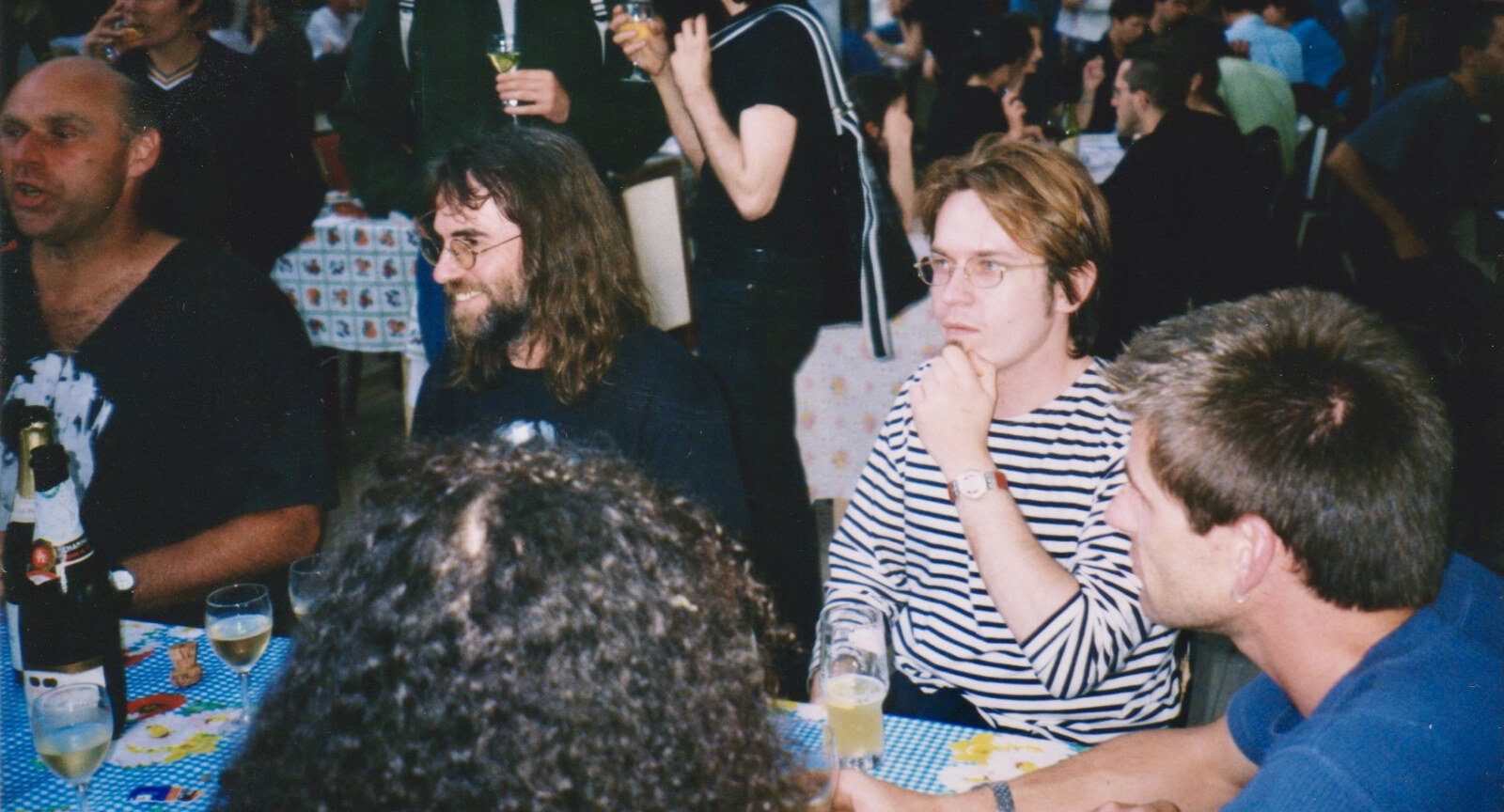
After ten minutes, I made a jump and I fell down with my guitar on the floor in the middle of the audience. I then opened my upper lip, my shirt was covered with blood…that did not prevent me from going back on stage to reconnect the jack of my guitar and to finish this concert! Since then, I’ve given a lot of concerts with them all over the world. I have learned a lot from that experience. Especially for improvisation in group.
Can you elaborate on the formation of Ulan Bator?
Since the beginning we defined ourselves from the outset as a variable geometry group. Ulan Bator was born in 1994 following the band we had at that time with Olivier in Paris called Miss Marvel:
We played a kind of “extreme Noise” between Unsane and Steel Pole Bath Tube or (early) Sonic Youth. We had given several concerts, including one in Paris at the opening of the Babes in Toyland… Then we decided to start again on less “garage rock” bases. We then built our own studio in a former mushroom mine outside Paris, on the edges of the Seine. Our drummer Franck Lantignac (originally from Bordeaux) joined us shortly before the recording of our first album. Most of the compositions already existed and we had already signed a contract with our first label DSA and for three albums. This trio Cambuzat/Manchion/Lantignac was the stable formation until 1999 when Franck decided to return to live in Bordeaux. We then decided with Olivier to continue as a duo and to look for a new drummer. We had written most of the music for ‘Ego Echo’ together and then called on Matteo Dainese (who was playing at the time with Teo Teardo and Jim Coleman from duo Here) as drummer for the recording of the album.
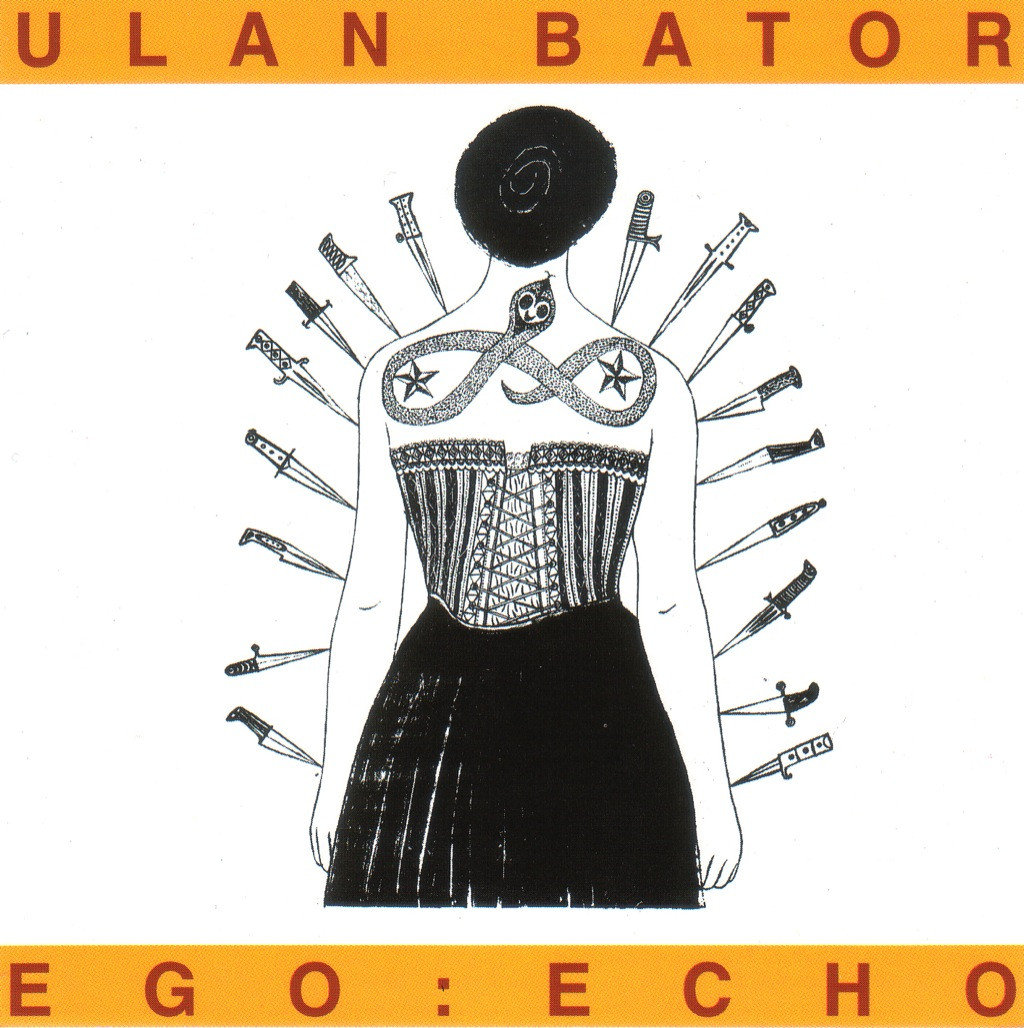
Olivier left the band at the end of 2001 after an exhausting ‘Ego:Echo’ tour. I then decided to continue with Matteo Dainese who became a stable member in Ulan Bator and recorded the album ‘Nouvel Air’ followed by ‘Rodeo Massacre’.
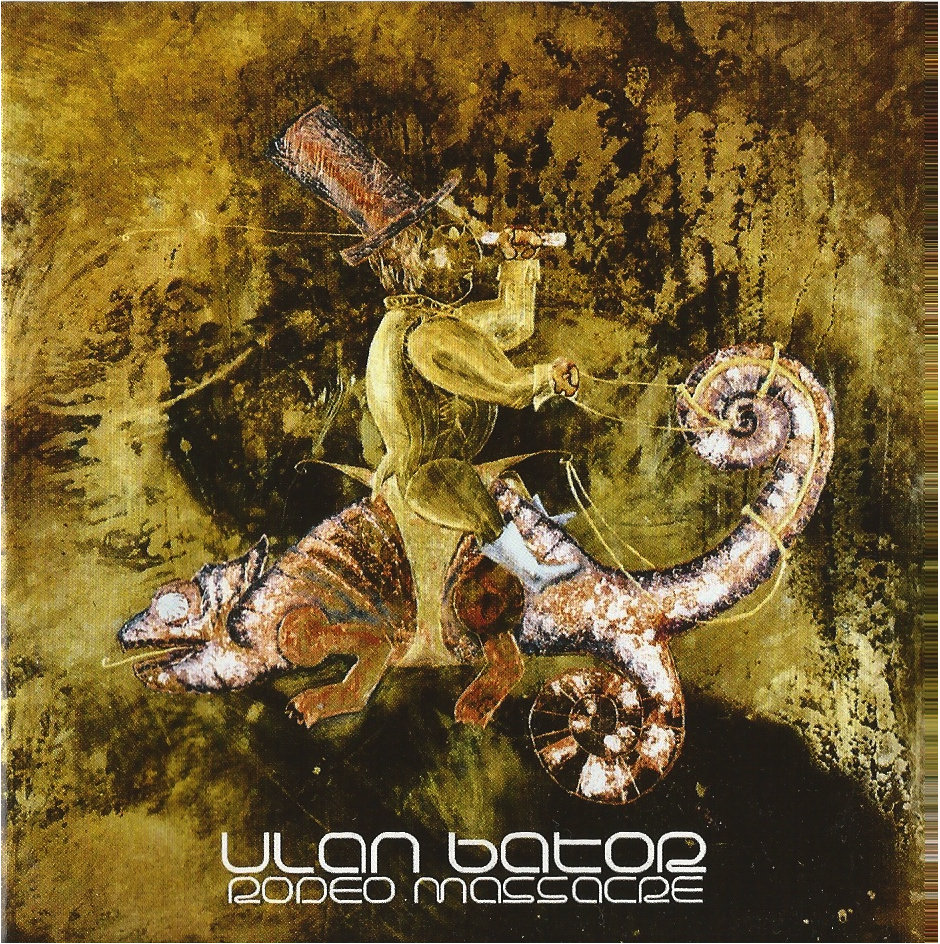
After ‘Rodeo Massacre’ and the tour that followed, I took a break with Ulan Bator during which I mainly played with Faust. It was only in 2009 that I went back to work as Ulan Bator. I completely changed the team and I recorded ‘Soleils’ then ‘Tohu-Bohu’ in the same time. Album featuring James Johnston (Gallon Drunk, PJ Harvey).
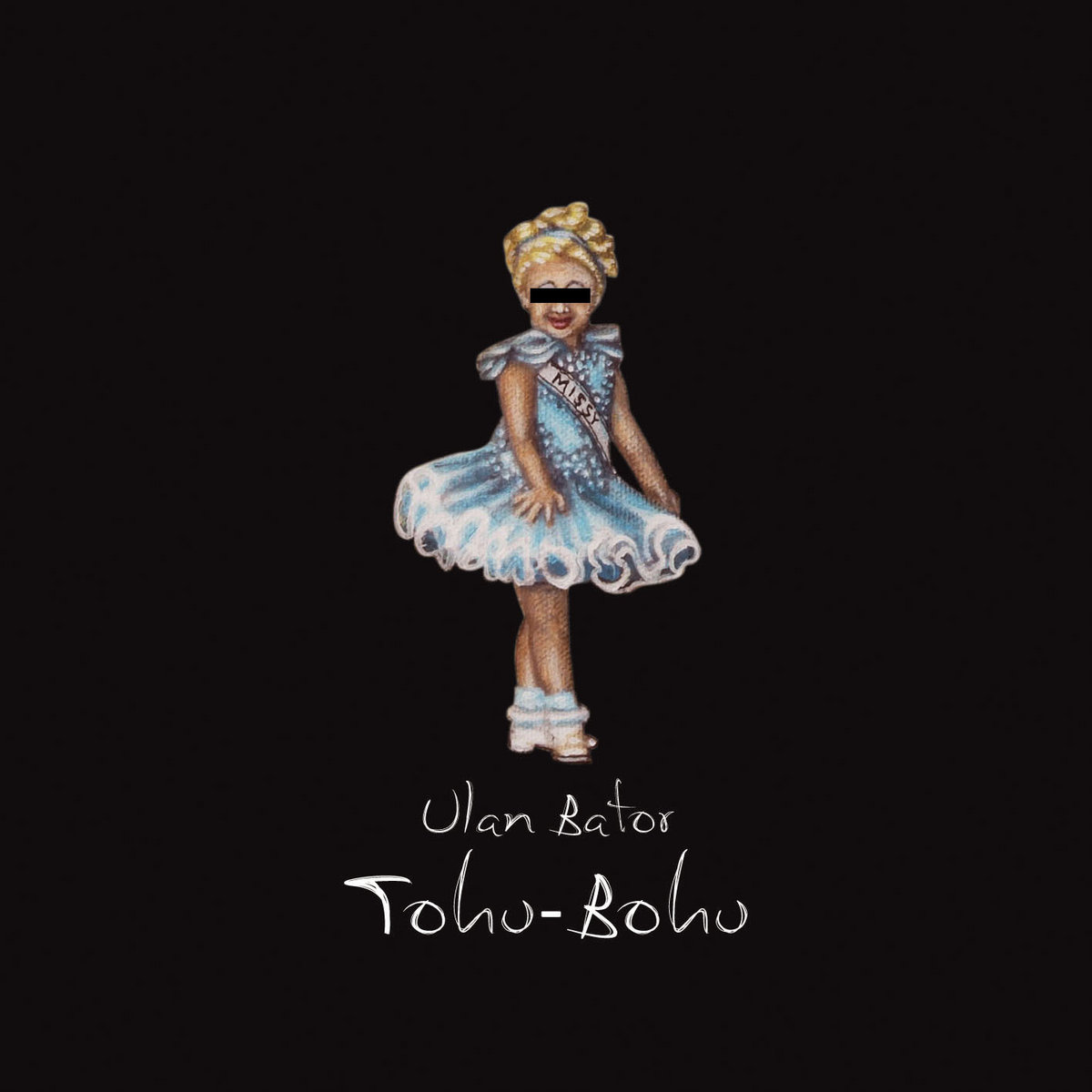
For the ‘En France en Transe’ LP it’s the same thing, new musicians joined me including Nathalie Forget playing amazing Ondes Martenot. ‘Abracadabra’ was recorded alone. ‘Stereolith’ on the other hand with two other musicians: Sergio Pomante & Mario Di Battista. During all these years, I think I’ve given a lot of musicians with whom I’ve collaborated a chance but I also had to break up with some of them. You know, it’s very complicated to carry a totally independent band like Ulan Bator through all these years without making waves.
How did you decide to use the name “Ulan Bator”?
Our label of the time, Les Disques du Soleil et de l’Acier (DSA) played a very important role in the starting of the band. Our manager and owner of the label Gérard Nguyen, supported and advised us a lot at that time. He was also a great coach. Gérard had created in the 70s the fanzine Atem. He also had already a management experience with a long list of French artists like Kas Product, Jack Berrocal, Univers Zero… but also then with Pascal Comelade. In addition to his label on which he continued to release records by Keiji Haino or God Is My Co-Pilot (among others), he also had a record store in the city of Nancy: WAVE, specialized in Avant-Garde music. He is a true music lover. So it was him, Gérard, who suggested we take this name “Ulan Bator”. I think this represented for him a period when Ulan Bator was also the name of a very respectable artistic collective that was active in Orléans (France) in the 80s (I hope I’m not mistaken?!). We were all very much in love with Asian culture and literature. The name was perfect and we made it our own. It’s interesting to know that at the time, Google didn’t exist yet, very few knew what Ulan Bator was! (The capital of Mongolia). It sounded like a war cry, or a magic spell, haha.
“Making a lot of noise, that was the original idea.”
Jelodanti Records recently issued a special version of your debut from 1995. What was the concept behind your debut?
Jelodanti, another young label run by two adorable people with a passion for music! Making a lot of noise, that was the original idea. Scaring with our own sound.
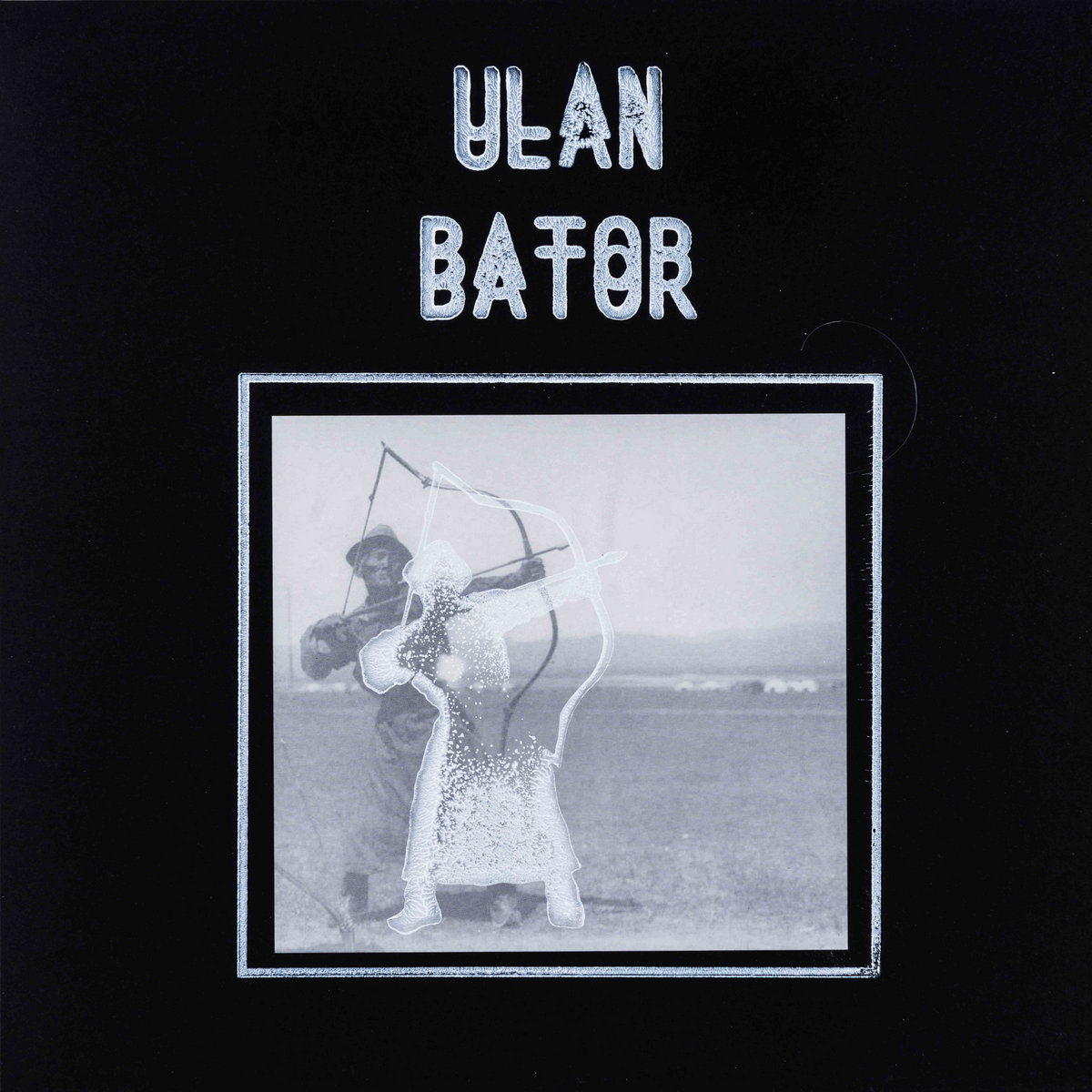
Half of the tracks are from the end of our previous band: Miss Marvel. It’s the noisier part of this record, but there’s also a more atmospheric aspect with the track that ends the album: ‘Cerf-Volant’… Influenced by Can and their studio ‘Inner Space’, we had decided to create our own studio in a chalk-mine outside Paris, located several meters underground.
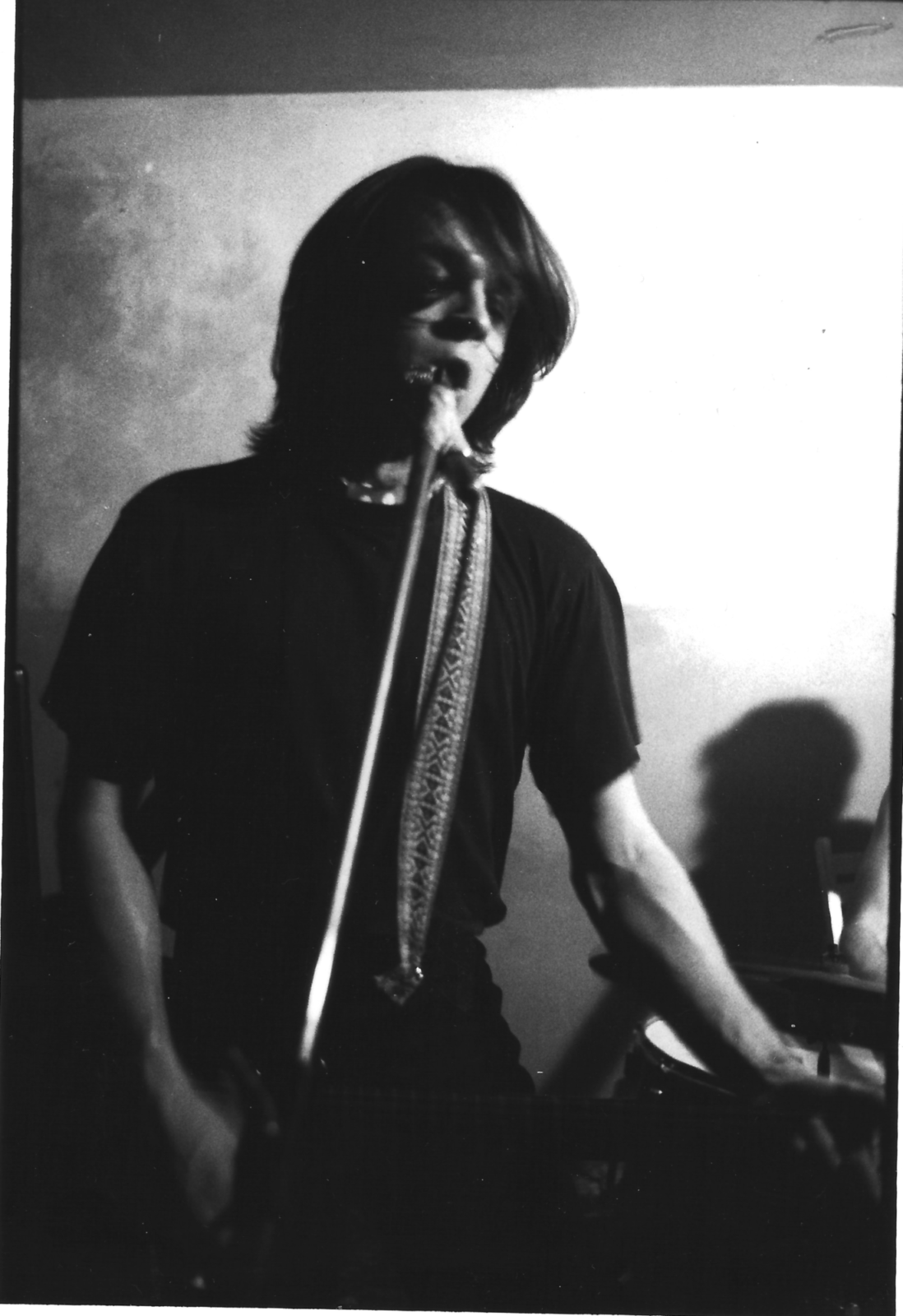
That’s where we recorded our first three albums. We called our studio La Guillotine. We had an eight-track Tascam 1/4-inch tape recorder. Our first two records were recorded with this machine… The drums in stereo on two tracks, one bass, two guitar tracks, one voice track and it’s done. No computers at the time. ‘Végétale’ benefited from an upgrade because we had rented a 16 tracks – 1 inch tape recorder to have more tracks available. A luxury! But, at the end we only used 12 out of the16 tracks if I remember correctly.
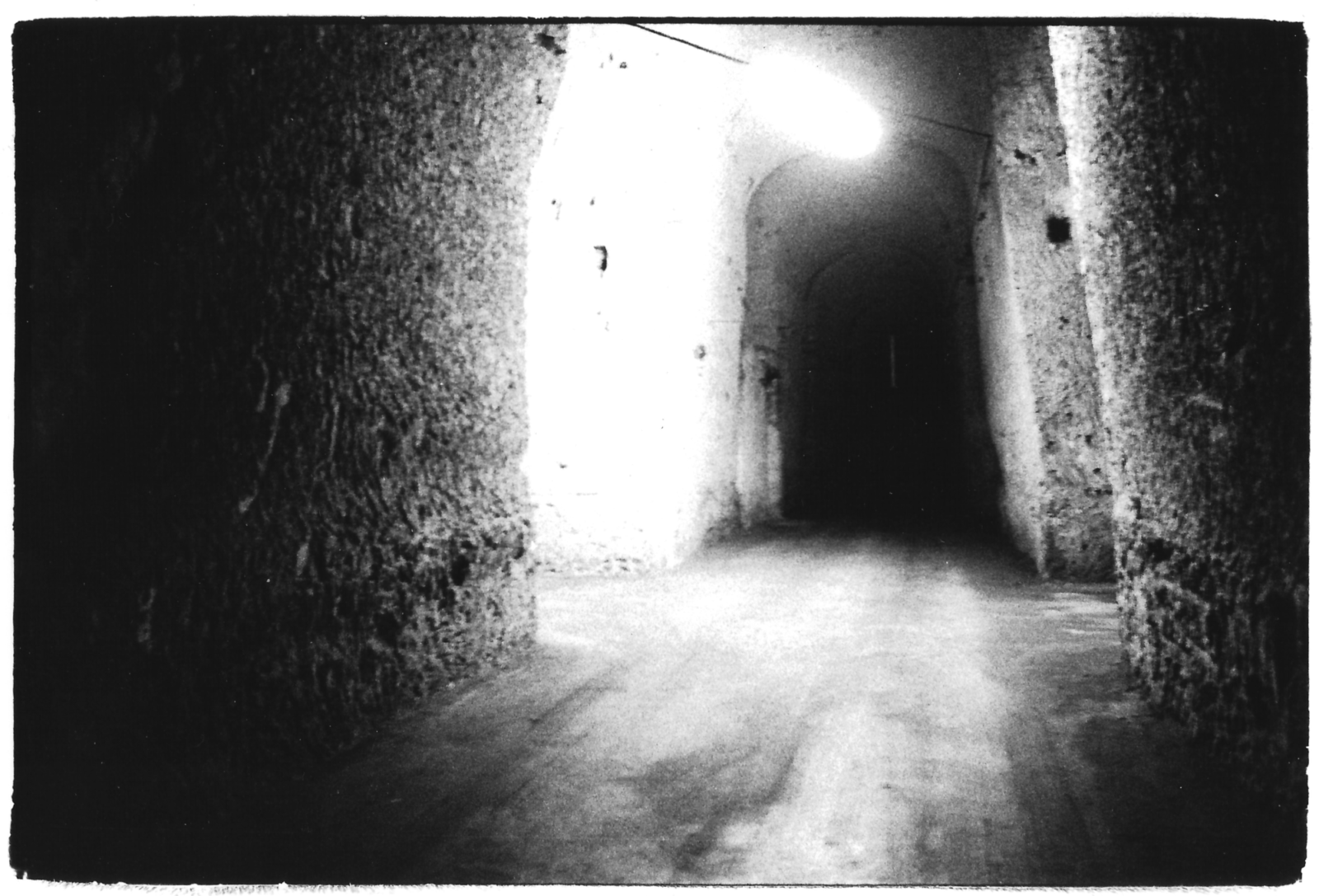
What influenced the band’s sound?
If we want to talk about musical styles I would say the no-wave (Mars, DNA), German (kraut)rock from the 70s (Can, Faust, Popol Vuh), psychedelic music (Pink Floyd) as well as the Noise scene that surrounded us at the time (Cop Shoot Cop, The Swans, Jesus Lizard, Fushitsusha, Boredoms) but especially this special place in which we rehearsed and recorded: our studio, our own laboratory. The acoustic was incredible there! You can hear it especially on the drums-sound on our first two recordings.
Do all members participate in writing songs? What was the writing and arranging process like?
The first album was composed entirely by Olivier and myself. Our drummer Franck played an important role afterwards for all the arrangements of the rhythms as well as for the recording of the drums. From the second album on, the work was done by three people but the lyrics were written by myself. Let’s say the lyrics truly appear from the ‘Végétale’ album.
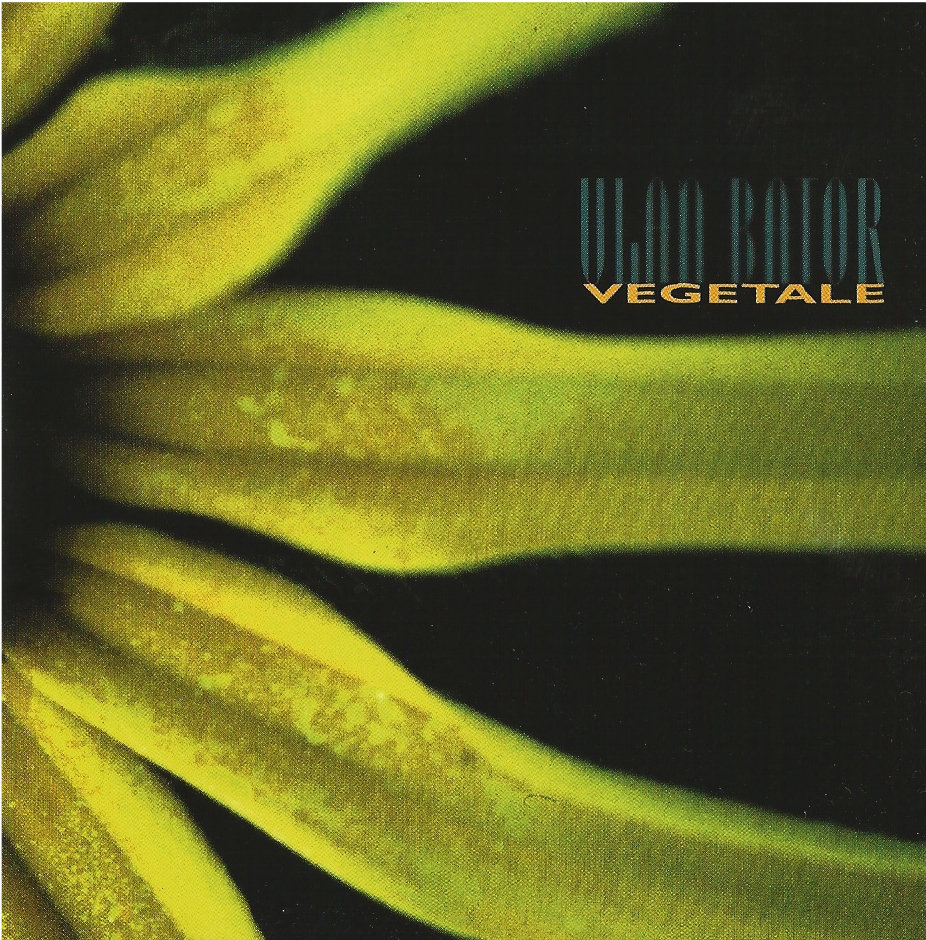
Later on, with our album ‘Ego:Echo’, we came back with Olivier to a writing of the music in tandem. After the tour that preceded ‘Ego:Echo’ (2001), Olivier left the band. I found myself writing the lyrics as well as the music alone, even if, concerning the music, the musicians who accompanied me in this long adventure often brought precious ideas, singular arrangements which gave a certain character to the songs. I think especially of great collaborators like Matteo Dainese (drummer for ‘Ego:Echo’, ‘Nouvel Air’ and ‘Rodeo Massacre’), Egle Sommacal (Massimo Volume) on ‘Nouvel Air’, James Johnston (Bad Seed, Gallon Drunk, PJ Harvey) on ‘Tohu-Bohu’ or Nathalie Forget for the album ‘En France En Transe’.
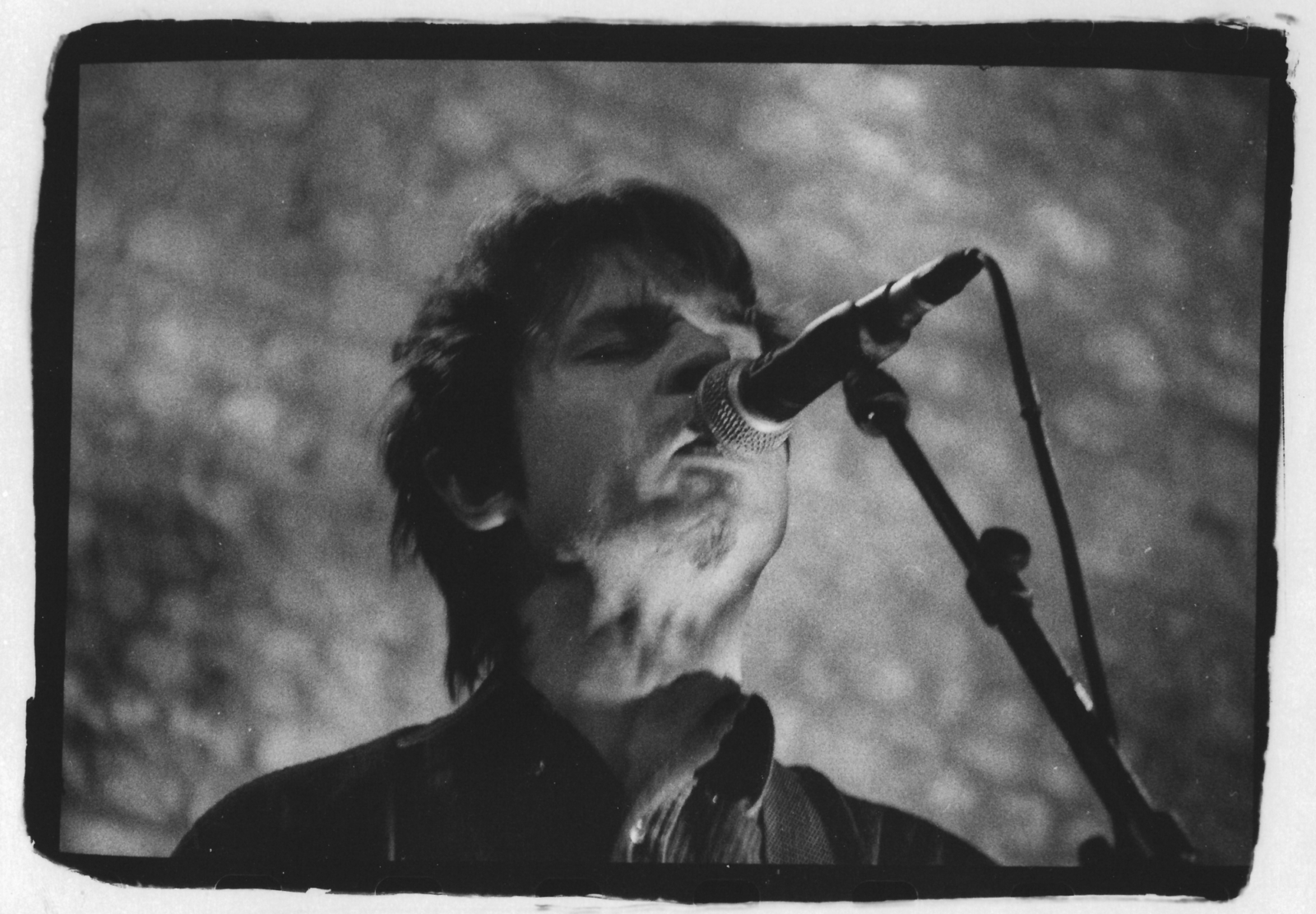
‘Végétale’ and ‘Ego:Echo’ followed. The latter was produced by Michel Gira (Swans) and it’s an amazing release.
Végétale was, I believe at the time, “a daring album”. In fact, I don’t think there were any records of this type sung in French in 1997. It was a kind of bet with the risk of being shot down in the press but also by our audience. It was a way for us to go further, to experiment once again and not only with distorted guitars but, with lyrics on a music that was, in most cases, instrumental (if we talk about Post-Rock label). With ‘Végétale’ we started to play a lot in Italy and got some visibility there after touring with important local bands like C.S.I (Tabula Rasa Elettrificata Tour) or Marlene Kuntz. This is what led us to sign with a label distributed by Virgin (Sonica Factory was the label of Litfiba by bass player Gianni Marrocolo) and gave us the possibility to record with more important means and to have the opportunity to choose Michael Gira (Swans, Angels Of Light) as Artistic Producer. We then found ourselves in a studio in the countryside of Florence (Italy) for the whole month of August 1999 to record ‘Ego:Echo’. Three weeks without leaving the studio. Without communication with the outside world. That’s how real records are born. Gira fully played his role as a producer. It was an intense experience. The album will be released in Europe and then in the United States on Michael’s label: Young God Records.
‘Rodeo Massacre’ was another release I would like to highlight in your discography.
This record was released after Nouvel Air, which was then mixed by Robin Guthrie of the Cocteau Twins (I chose Robin because he had mixed a Gun Club album that I loved as a teenager: ‘Mother Juno’). This album is also impregnated with a certain isolation because we rehearsed the songs (pre-production) at the time in trio (Matteo Dainese/Drums with Manuel Fabbro/bass and myself/guitar, organ and vox) locked in an old stone house, completely isolated above Lake Trasimeno (Umbria). It was then recorded in Bologna, entirely in analogical and it had besides, a certain success notably in Italy. The song ‘Pensées Massacre’ found itself on rotation on MTV Italy at the time and for several weeks.
The concert halls were also full for the tour that followed… it’s a record that for me remains sincere and it is certainly one of the biggest success of the band.
‘Abracadabra’ and ‘Stereolith’ are your latest two releases. What’s the story behind them and is there a plan for a new album in the near future?
‘Abracadabra’ is like the Phoenix rising from its ashes. I was coming out of a bad experience in the studio and I had decided not to release the album we had just recorded. I also didn’t want to use the songs that were on it because they represented for me a trauma linked to this bad experience in the studio. It’s a shame because the musicians around me (Matteo Dainese, Nathalie Forget and Nicolas Manzan) were very good but I didn’t get along with the producer. I then decided to get back to work and I composed and recorded ‘Abracadabra’ alone, from scratch, in my home studio and in very short time.
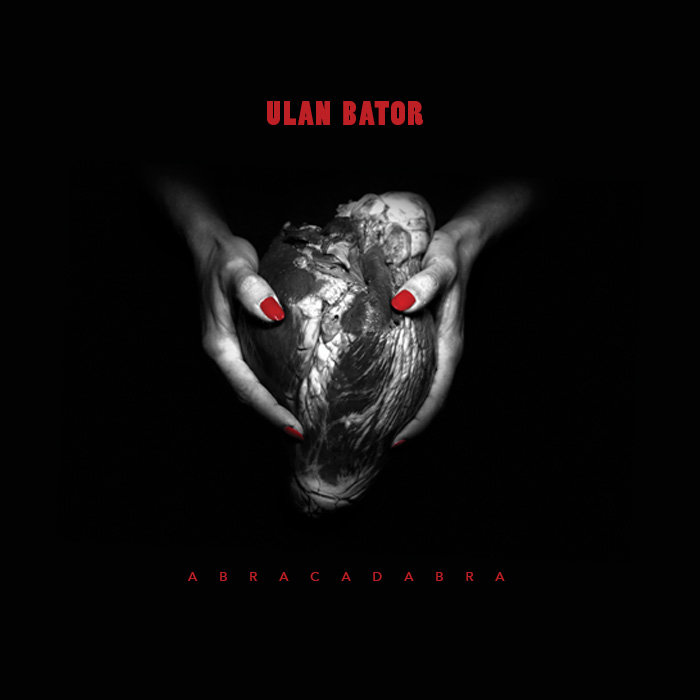
‘Abracadabra’ was released in early 2016 and was very well received by the public and the press. Just after the tour that followed ‘Abracadabra’, I decided to record a new album with the musicians from the previous tour. I was very inspired and didn’t want to lose the rhythm. I wrote new songs in record time. ‘Stereolith’ will be released barely a year after ‘Abracadabra’ for the German label Bureau B. For me these two albums are linked because they are close even if they are quite different musically speaking.
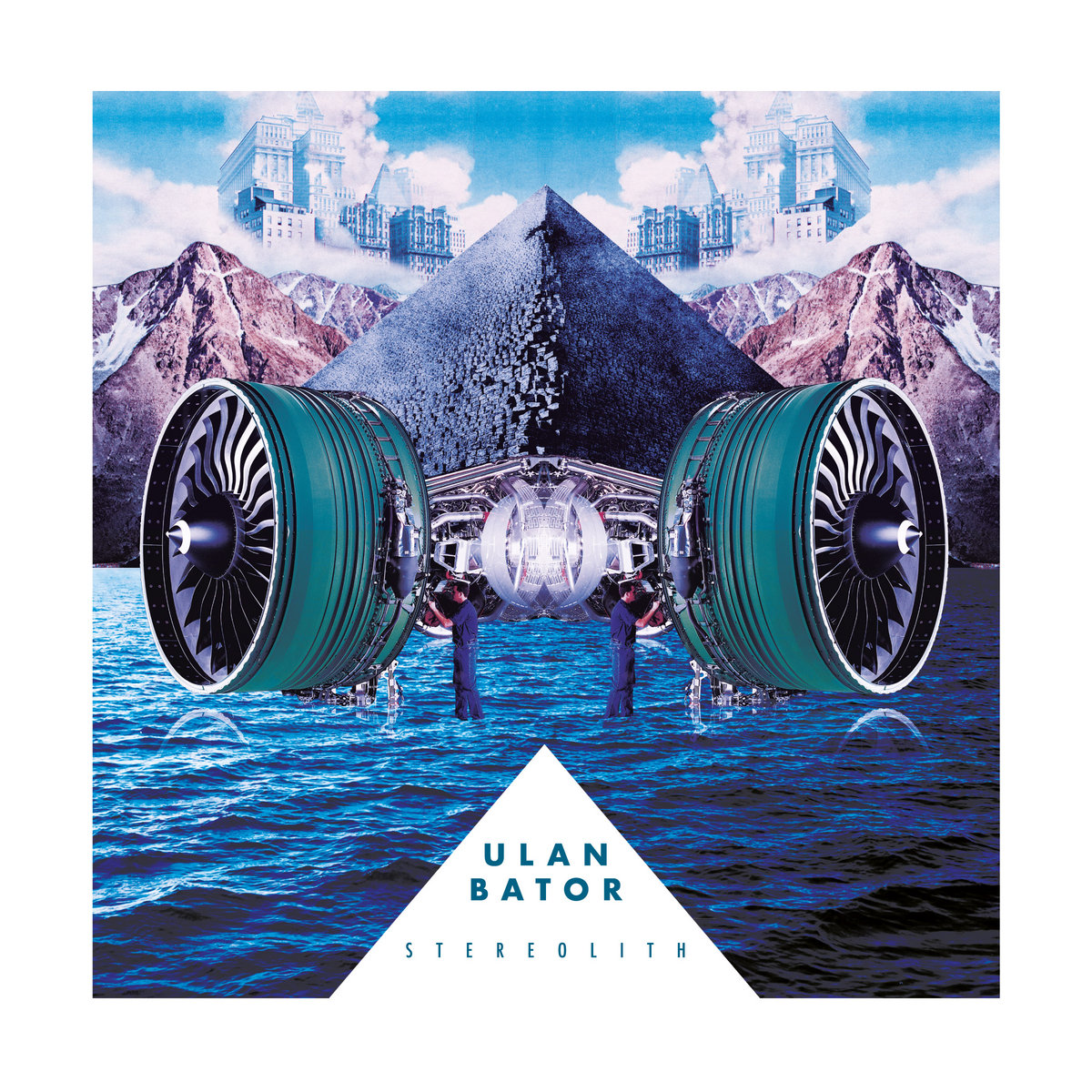
‘Stereolith’ sounds more electronic as I recorded a lot of synthesizers on it, it’s an album mainly sung in English while ‘Abracadabra’ is an album with a prevalence of guitars and sung mainly in my mother tongue. By the way, I’ve been working on a new album for over a year now.
It might take some time because I’ve become very (too?) demanding. I intend to finish it by the end of 2021 at the latest. It remains under construction for the moment but, this is one of my priorities for next year.
“It goes from Beethoven to The Stooges.”
Have influences changed during the years?
I don’t really think so. I fell in love with a lot of musicians and records during the first 30 years of my life. It was during this period that my tastes were formed. These are still my influences to this day. It goes from Beethoven to The Stooges. From the age of thirty, I liked a few records like some of Spiritualized or Animal Collective, but let’s say that my passion for novelty has calmed down considerably. When I started my new project I Feel Like A Bombed Cathedral I could no longer listen to so-called modern music but exclusively to classical, contemporary, experimental and to some soundtracks. I know it’s awful to think that but, for me, the best “pop rock music” dates back to before the 2000s. Nowadays, it is more the sound-productions that are interesting and innovative. However, there are still some very good things, especially in electro music. With some techno, it is certainly music that still has a certain animosity that rock music has lost.
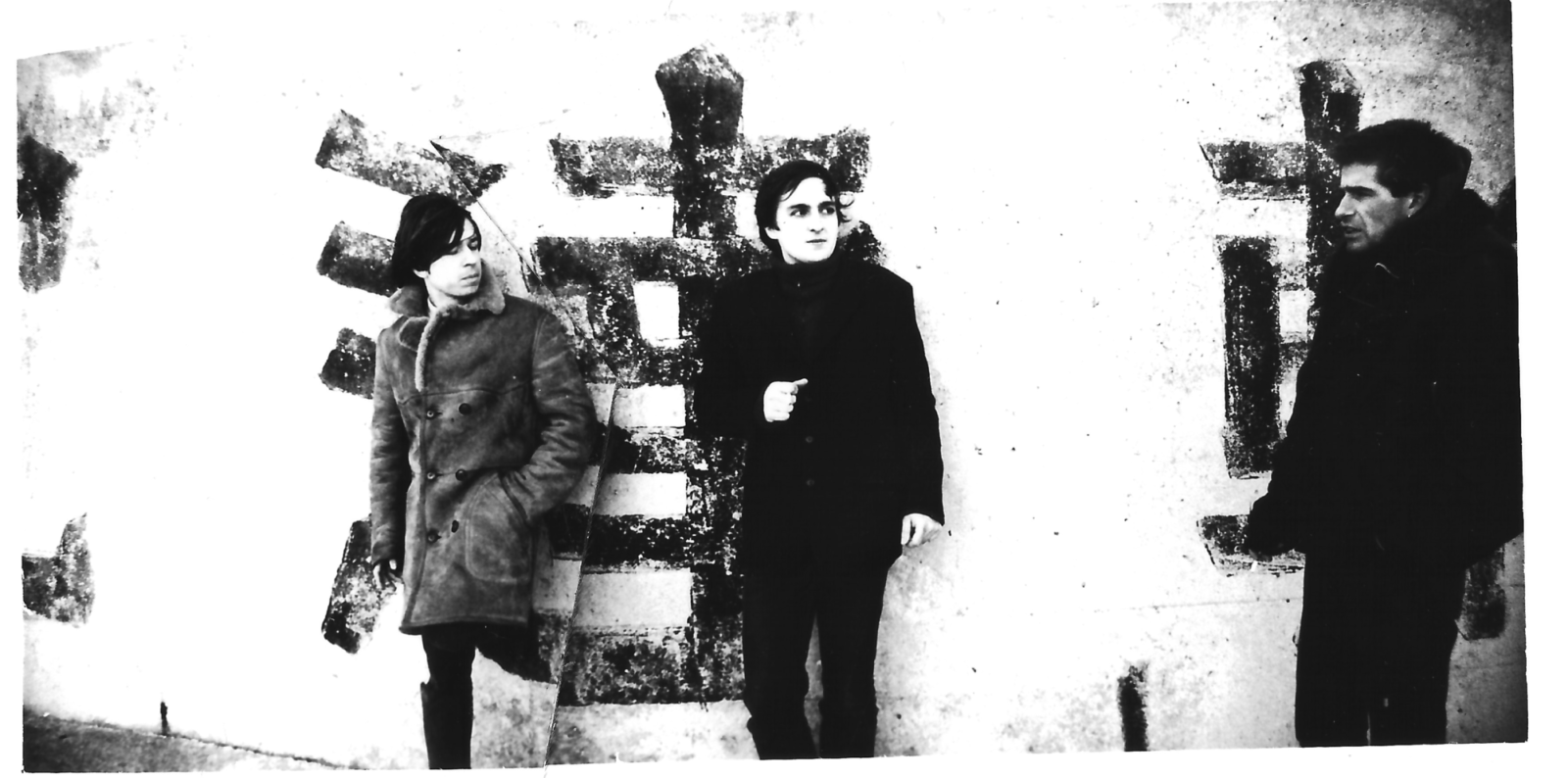
Would you like to comment your guitar technique? Give us some insights on developing your guitar technique.
I have a classical piano education. I started playing the electric guitar after listening to The Cure’s ‘Pornography’ and Joy Division’s debut album. I think I was barely fourteen years old when my friend Ludovic showed up at my house with a glitter-blue-colored electric guitar (Aria pro II) with four rusty strings and a 15 watt Peavey amp. I didn’t even know how to tune these four strings. It all started there! So I am completely self-taught. That’s why, I think, I was able to create my proper style (if we want to talk about style or technique) because I don’t really have one. It’s this naivety that gives me this freedom and curiosity still today and pushes me to try to innovate with my guitar. I have often been remarked that I play the guitar like a piano. That’s true. I don’t think I have a guitarist’s approach, but rather a keyboarder’s one.
“I have always had an inner conflict between improvisation and composition.”
How important is improvisation for you?
I have always had an inner conflict between improvisation and composition. That’s the reason why I have several projects, haha. Ulan Bator, for example, belongs to composition or in some cases to “rock improvisation”, jamming around established chords. I think there are many approaches to so-called improvised music. It can go from “anything” to improvisation with rules that exist according to the style of music played. Improvisation in a band requires rules. It requires attention, a dialogue between musicians. You have to listen to each other to be able to communicate. Selfishness has no place there. With faUSt, we draw up a roadmap (set-list) well before we perform on stage and talk about it for hours and before each concert. Once on stage, body and visual communication, also becomes paramount. With my new project IFLABC, solo improvisation is a journey with no limits, without boundaries, where I let myself drift on a river that corresponds to my own psyche. I like to feel part of the sound, like being bathed in a liquid, drowning, losing myself in my own music. It is a sometimes trying experience, like a hypnosis session. It requires a certain concentration. That’s the reason why I try to record all my performances in my studio because I don’t want to miss one of those rare moments that I would call “trance”. For me improvisation is an ancestral language. Contrary to non-improvised music, it is not written down. This then opens another interesting chapter, the one about spectral music…
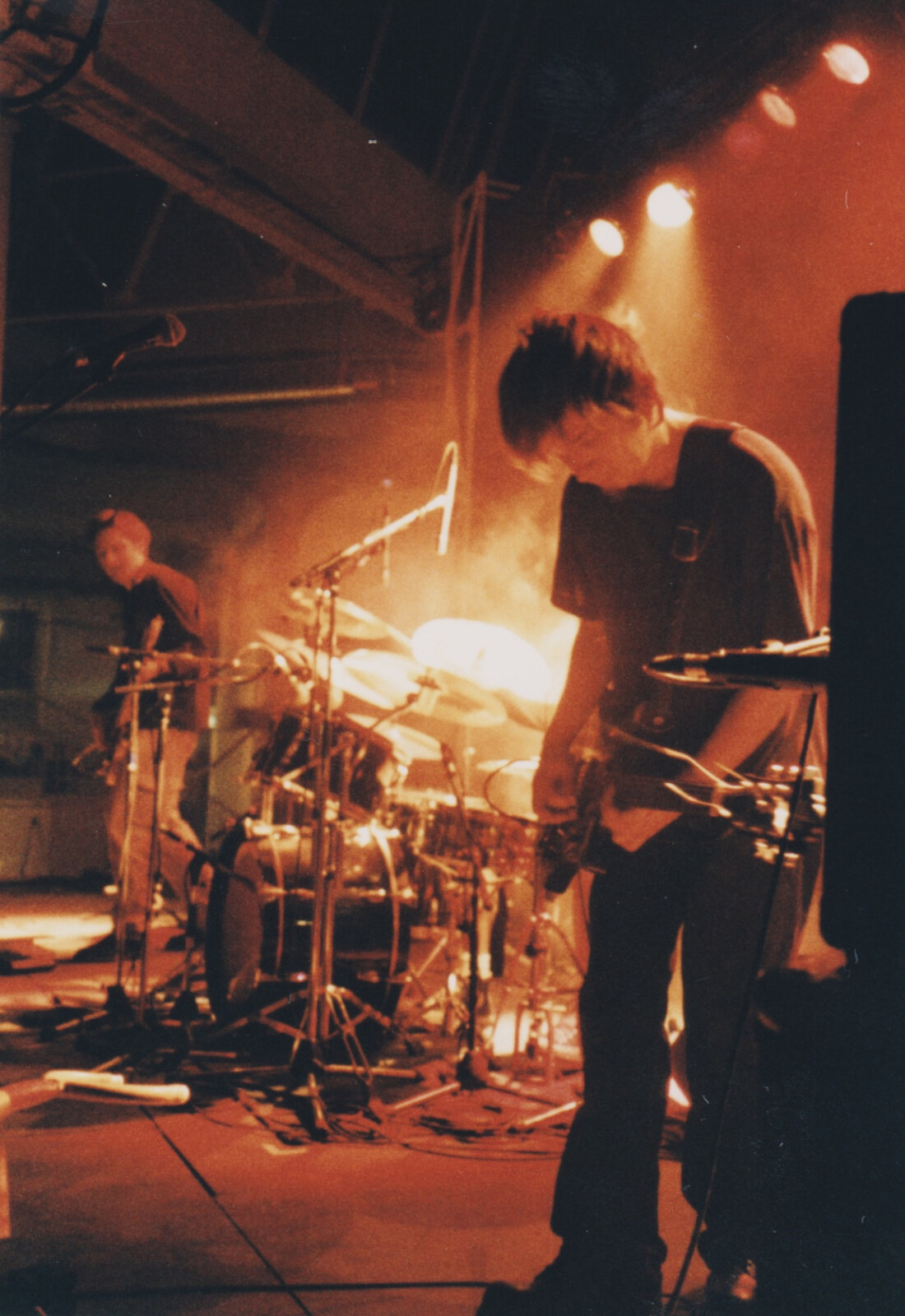
What other musical activities have you undertaken lately?
I have always been passionate about working in the studio. As a teenager, I already had a four-track cassette recorder that I loved to record myself with. I developed this passion all these years and I now have my own studio where I also do remote mixing and mastering for other bands. I also sometimes produce musicians artistically but this requires time and means. I have no genre barriers and find sound-work always exciting, creative and enriching.
Is there any unreleased material by Ulan Bator?
Yes, there are things that have never come out but are not interesting enough for my taste. The album I was telling you about that should have been released instead of ‘Abracadabra’ might be of interest to some fans but, I’d rather move forward than release unreleased tracks that I’m not 100% convinced about. I recently found on minidisc, a very good recording of a nice full performance from ‘Ego:Echo”s French tour (2001). I’m thinking of equalizing it and eventually putting it as a free download on our Bandcamp.
Let’s end this interview with some of your favourite albums.
The list is long! Here is a spontaneous selection of some of my favorites…
The Velvet Underground – ‘The Velvet Underground & Nico’
Brian Eno – ‘Before And After Science’
Robert Wyatt – ‘Rock Bottom’
The Residents – ‘Duck Stab/Buster & Glen’
This Heat – ‘Repeat’
Silver Apples – ‘Silver Apples’
Neil Young – ‘Harvest’
Can – ‘Future Days’
Faust – ‘Clear’
The Cure – ‘Pornography’
Public Image Ltd – ‘Flowers Of Romance’
My Bloody Valentine – ‘Loveless’
David Bowie – ‘Scary Monsters’
King Crimson – ‘Red’
Gun Club – ‘Danse Kalinda Boom’
Serge Gainsbourg – ‘L’Homme à tête de chou’
Pink Floyd – ‘Meddle’
Neu! – ‘Neu!’
The Stooges – ‘Fun House’
Captain Beefheart and His Magic Band – ‘Trout Mask Replica’
(Un)classical music:
Ravel – ‘Pavane for a Dead Princess’
Debussy – ‘La Cathédrale Engloutie’
Eric Satie – ‘Gemnopédies’
Olivier Messiaen – ‘Des canyons aux étoiles’
Charles Koechlin – ‘Au loin’
Henryk Gorecki – ‘Symphony n°3’
Glenn Gould plays Bach – ‘Goldberg Variations’
Giacinto Scelsi – ‘Hymnos’
Gyorgy Ligeti – ‘Requiem’
Jazz:
Sun Ra – ‘Space is The Place’
Miles Davis – ‘Bitches Brew’
John Coltrane – ‘A Love Supreme’
Alice Coltrane – ‘Ptah, The El Daoud’
Pharoah Sanders – ‘Karma’
John Zorn/Naked City – ‘Grand Guignol’
Soundtracks:
Ennio Morricone – OST everything
Francois de Roubaix – OST everything
Wendy Carlos – ‘A Clockwork Orange’
Have you found something new lately you would like to recommend to our readers?
Toshiro Mayuzumi – ‘Nirvana Symphony’. Along with Dumitrescu, Murail and Grisey, he is one of the precursors of what is called spectral music.
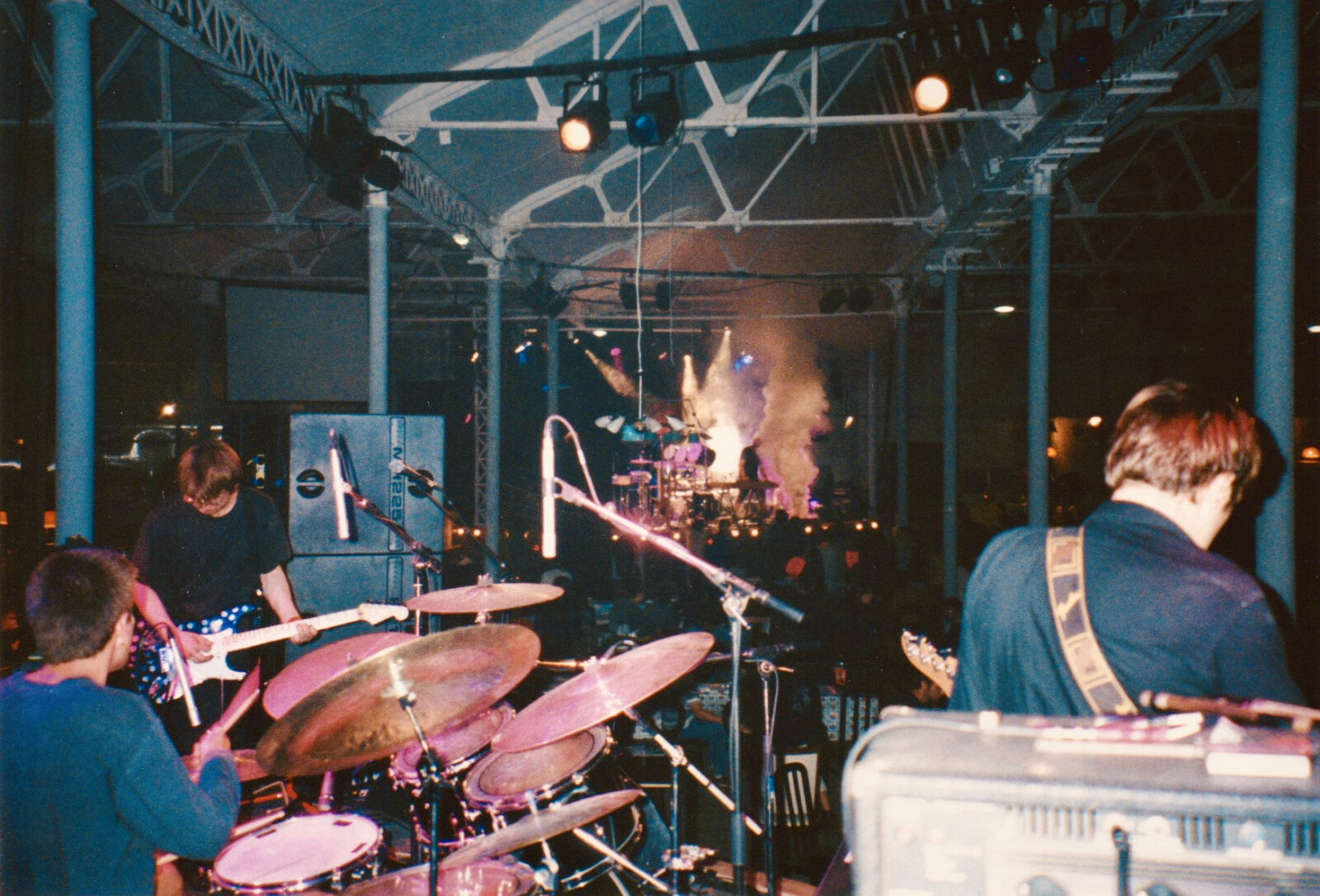
Thank you for taking your time. Last word is yours.
En avant la musique! Amaury Cambuzat
Klemen Breznikar
Ulan Bator Facebok / Instagram / Twitter / Bandcamp / YouTube
I Feel Like A Bombed Cathedral Facebook / Bandcamp


